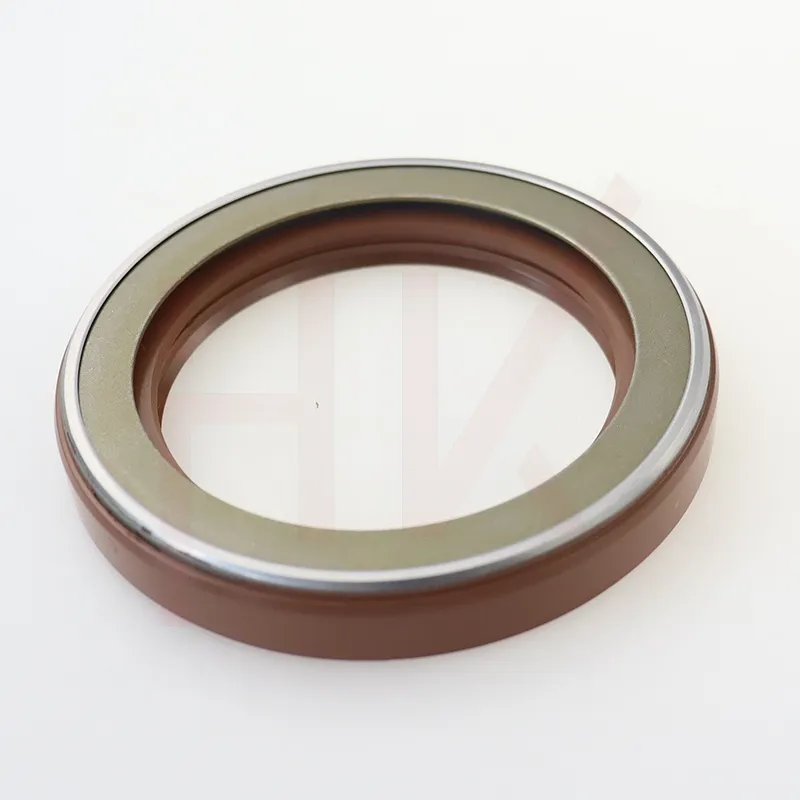Dec . 12, 2024 10:31 Back to list
hydraulic oil seal material
Understanding Hydraulic Oil Seal Materials
Hydraulic oil seals are critical components in various machinery and equipment, playing a vital role in preventing fluid leakage and contamination. The effectiveness of a hydraulic system often hinges upon the quality and suitability of the materials used in oil seals. This article delves into the materials commonly used for hydraulic oil seals, their properties, and considerations for selecting the right one.
Common Materials for Hydraulic Oil Seals
1. Nitrile Rubber (NBR) Nitrile rubber, also known as Buna-N, is one of the most widely used materials for hydraulic oil seals. It possesses excellent resistance to petroleum-based oils and fuels, making it suitable for a broad range of hydraulic fluids. NBR is also elastic, durable, and can withstand moderate temperatures, usually between -30°C to +100°C. However, it is not as resistant to weathering and ozone as other materials, meaning it may degrade in outdoor applications.
2. Fluoroelastomer (FKM) Fluoroelastomers are often preferred in harsh environments due to their superior resistance to extreme temperatures and aggressive chemicals. FKM can operate effectively in a temperature range of -20°C to +200°C, with some grades capable of withstanding even higher temperatures. This material is particularly effective against oil, fuel, and certain acids. However, FKMs tend to be more expensive than other elastomers, which can be a significant consideration for cost-sensitive projects.
3. Polyurethane (PU) Polyurethane seals are known for their exceptional wear resistance and high tensile strength. They are ideal for high-pressure hydraulic applications due to their robustness. Polyurethane oil seals can operate effectively in a temperature range of -30°C to +80°C, but they may not be as resistant to certain hydrocarbons and other fluids as NBR or FKM. Therefore, careful consideration is required regarding the specific fluids the seals will encounter.
4. Silicone Rubber Silicone rubber is well-regarded for its ability to endure extreme temperature variations, from as low as -60°C to as high as +200°C. This material is often used where flexibility and resilience are critical, but it may not be suitable for all types of hydraulic fluids. Silicone is generally not resistant to petroleum oils, which limits its application in hydraulic systems unless specific formulations are used.
hydraulic oil seal material

5. Metallic and Composite Seals In specialized applications, metallic seals and composites may be employed, particularly in high-pressure and high-temperature environments. These seals combine the durability of metals with elastic materials to create a strong barrier against leaks. They offer enhanced performance in extreme conditions and can be customized to suit specific operational needs.
Factors to Consider When Choosing Seal Materials
When selecting the appropriate material for hydraulic oil seals, several factors must be considered
- Fluid Compatibility Understanding the type of hydraulic fluid used in the system is critical, as it influences the material’s ability to resist chemical deterioration. - Temperature Range The operational temperature range significantly affects performance; thus, materials must be chosen based on their tolerance to heat and cold.
- Pressure Conditions High-pressure applications may require more robust materials that can withstand increased stress and prevent deformation.
- Cost Budget constraints are also important, especially since premium materials can substantially increase overall project costs.
In conclusion, selecting the right material for hydraulic oil seals is crucial for the efficient operation of hydraulic systems. By carefully considering the specific application requirements and the properties of available materials, engineers can maximize performance and reliability while minimizing maintenance costs. Understanding these elements not only enhances machinery lifespan but also contributes to improved safety and efficiency in industrial applications.
-
TCN Oil Seal Metal Ring Reinforcement for Heavy Machinery
NewsJul.25,2025
-
Rotary Lip Seal Spring-Loaded Design for High-Speed Applications
NewsJul.25,2025
-
Hydraulic Cylinder Seals Polyurethane Material for High-Impact Jobs
NewsJul.25,2025
-
High Pressure Oil Seal Polyurethane Coating Wear Resistance
NewsJul.25,2025
-
Dust Proof Seal Double Lip Design for Construction Equipment
NewsJul.25,2025
-
Hub Seal Polyurethane Wear Resistance in Agricultural Vehicles
NewsJul.25,2025
-
The Trans-formative Journey of Wheel Hub Oil Seals
NewsJun.06,2025
Products categories
















